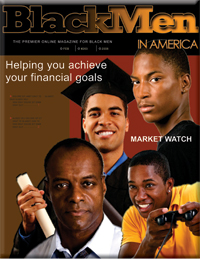By Nicholas Maurice Young, Ph. D.
Recently, I watched the movie Act Like A Man. It chronicles the lives of five men, and their dealings with women. The movie is based on a best-selling How-To manual for women in dealing with, and dating men. The book, Act Like a Lady, Think Like a Man attempts to provide a philosophical blueprint for women that want to understand the thinking and behavior of men.
The movie follows the lives of the five men and the women that each man desires. It shows the inherent fallacy of many male-female relationships: Men pursue women with the hope that they will have sex with her; Women pursue men to connect with “Mr. Right,” or the guy that has the right bank account, and social status. Or, so the story goes.
Why are men and women engaging in this destructive dance of indiscretion?—an exercise that leaves both parties emotionally deficient and intellectually insecure to see the error of their ways?. I believe that many men and a growing number of women behave this way because many of them lack the courage to be different.
For me, the courage to be different comes in at least three forms. The first form involves being able too see differently about the object of your affection. For me, the primary problem in this area involves around seeing a women as nothing more than a sexual object. When I was six or seven years old, I often admired the girls I was around. While I was initially attracted to a girl’s personality, I almost always was more attracted to her physical features—her breast and ass. Especially her ass. Much like the other boys I was around, I always found a woman’s ass the object of my sexual fantasy. As I got older, my friends and I always measured a girl’s sexual readiness by the circumference of her ass, and the size of the “gap” that we believed existed between her thighs, below her vagina. For us, having sex with a girl was the primary measure of our maturity and our readiness for manhood.
The second area of courage that I believe is lacking among some Black men involves the ability to think differently about women. As I suggested above, not being about to think differently about women has led many of us to think that women can be viewed as sexual objects, instead of objects of our genuine affection. The thinking behind the development of this opinion can be located, I think, in the conversations that many men have with their uncles and fellow young men. Personally, I do not know many, or any fathers that give their sons this kind of advice. This possibility is due in large part to the absence of fathers in the lives of young Black boys and men. I believe that the perpetual paucity of Black fathers in the lives of young Black boys creates a void in the hearts of young Black men about the proper way to think about and see the beauty of a woman. Hence, the ability of many men to do the third, and final component of courage: acting differently.
I see the ability to act differently as the most important aspect to finding and or locating the courage to be different; however, it is a skill that is dependant on the first two phases of courage. Acting differently first requires the ability to see a woman and admire her intelligence, kindness, beauty, and recognize that she is the most beautiful creature on the planet. Second, a man must recognize that he does not have to be like other men. He must recognize that he can be his own person. Thus, in doing so, he must see that calling a woman a “Ho” or “Bitch;’ stepping out on his woman; believing that making love to his woman is the same as fucking her (although some women like to be treated this way) is usually the wrong way to show her affection.
In short, I believe that the inability of some men to recognize that some of our problems with women can be found in our inability to recognize that some of us lack the courage to see, think, and act differently about ourselves, women, children, and other people around us.
Your thoughts?


































